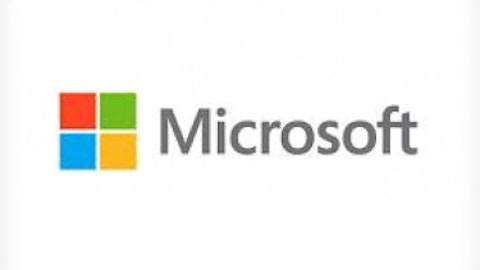Facebook Inc (NASDAQ:FB) has been one of the most disappointing IPOs in 2012, losing 47.9% of its original value to this date. Chances are, if you’ve been on the Internet in the past six months, this comes as no surprise. What you may not know is that there’s been another, almost equally disappointing IPO this year in the same industry as Mark Zuckerberg and Co. Ladies and gentleman, we’re talking about none other than Yelp Inc (NYSE:YELP). Since going public in March, shares of the business review company have been in a state of perpetual free fall, losing more than 27% over this time. While Facebook it most certainly is not, Yelp has still given its investors reason to weep.
Mobile monetization, the ultimate proof of prosperity
Much of Yelp’s negative price performance can be attributed to two words: mobile monetization. Much like Facebook, LinkedIn Corporation (NYSE:LNKD), and the rest of the social media crowd, Yelp has been punished by the markets for uncertainties in this arena. Unlike Facebook, though, which reported in the third quarter that mobile now makes up one-seventh of total ad revenues after amounting to zilch a year ago, Yelp has yet to introduce a comprehensive monetization strategy.
In its most recent Q3 report earlier this month, Yelp executives discussed the importance of its mobile app, which now accounts for a whopping 45% of the company’s total traffic. While Yelp has been experimenting with targeted, local ads that generate “significantly higher” click throughs on mobile compared to desktop, this space has been limited to those visiting Yelp’s URL on a mobile browser, which doesn’t include its popular app. Co-founder and CEO Jeremy Stoppelman did state that ads on its mobile app would be “fully rolled out by the end of the fourth quarter,” though, so we probably won’t see the effects until its fiscal first quarter next year.
Next quarter, sell-side analysts expect Yelp to generate an EPS of three cents a share in 2013, up from the 33-cent loss it is expected to book by the end of this year. Making the swing toward profitability is a positive psychological indicator for any stock, a move that should give Yelp investors even more solace if it is bolstered by decent mobile ad revenues from the company’s app.
Regarding the specificities of mobile advertising dollars, Stoppelman did state that “you wouldn’t see any immediate pop in the metrics since, by and large, our local advertisers are paying on a flat rate subscription kind of a model,” so Q1 2013 looks to be the earliest we’ll see any bit of impact from app ads, as subscriptions are re-upped for the following year. On the whole, though, it looks like local revenues are the healthiest, as they’ve grown by 75% year over year and look set for similar growth next year.
Like many in Yelp’s industry, Google is lurking
Unlike Facebook Inc (NASDAQ:FB), the biggest risk to Yelp’s future may be the company that is responsible for the majority of its search traffic: Google Inc (NASDAQ:GOOG). The tech giant that’s involved in everything from augmented reality glasses to self-driving cars has made two major acquisitions in the restaurant review space in the past two years. In 2011, the company bought Zagat, the popular culinary ratings agency, and in August of this year, Google snatched up Frommer’s for a mere $23 million. While the Zagat buy grabbed the most headlines, Frommer’s, which is a a travel advisory service that publishes print guidebooks and offers an array of web services, may have the most to offer to Google.
Yelp, meanwhile, hasn’t publicly stated any worries over the acquisition, as Stoppelman likened the move to little more than healthy competition, going as far as saying that “the things that they’ve [Google] done in the past haven’t had a big impact,” when asked about it in his company’s Q3 Q&A segment. Obviously, this is a bit of a bluff by Stoppleman; who wouldn’t be worried about Google lurking in their backyard?
While it remains to be seen exactly how much Google will infringe upon Yelp’s review-hungry customer base, the fact of the matter is that the company’s budding service is fundamentally different than that of Yelp. In layman’s terms, Yelp is for the consumer who trusts his peers’ judgement, as the entirety of Yelp’s review system is dependent on crowd-sourced reviews. Google, meanwhile, has been making quite the push in the “expert” restaurant review industry, as Frommer’s provides it with a tested companion to Zagat’s well known scoring system.
In short, Google hasn’t had the time to implement these acquisitions into their search results just yet, but if they do, web surfers would hypothetically have the ability to access expert opinions on any food joint from to Italian to Tex-Mex. Though estimates vary wildly, it has been repeatedly mentioned that the majority of Yelp’s browser traffic — which accounts for 55% of total visits — is via Google Search, so it’s safe to say that Yelp may lose out on at least a small portion of those visitors.
While these points are justifiable, an equally viable argument can be made that it’s Yelp’s distinction from Google that provides it safe haven from the Mountain View-based company. Ultimately, it’s up to the investor what side of the fence they are on, but we’ll have to side with the latter, as crowd-sourced and expert restaurant reviews are different enough to make it possible for Yelp to weather the coming storm.
What are investors to do?
From a valuation standpoint, shares of Yelp do trade at a modest price-to-sales multiple of 8.9X, which is below Facebook (9.3X) and LinkedIn (10.0X), but below search focused peers Google (4.5X) and Yahoo! Inc. (NASDAQ:YHOO) at 4.1X. As mentioned above, analysts expect Yelp to swing toward profitability by the end of next year, and are predicting a solid five-year annual EPS growth of 22.5%, not too far off from what’s expected of Facebook (26.0%), and above Google (15.7%) and Yahoo (11.7%). Of its closest peers in the Internet content and information industry, only LinkedIn (70.2%) has forward-looking estimates that are truly exemplary.
While it’s up to each investor’s individual opinion, to us, Yelp looks like a solid buy at the moment. The company is make strides in mobile advertising, and is on the cusp of introducing local ads to its widely popular mobile app. The threat of Google obviously persists, but Yelp’s services look to be distinct enough to maintain its current growth trajectory, which is surprisingly near that of Facebook.
In the hedge fund industry, two of Yelp’s biggest bulls include Guru Ramakrishnan and D.E. Shaw; for a complete look at the stock’s profile on Insider Monkey, continue reading here.






